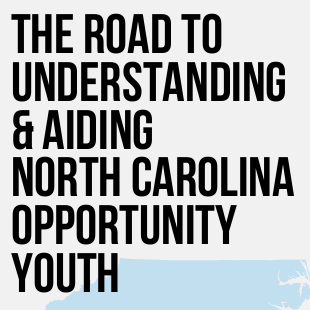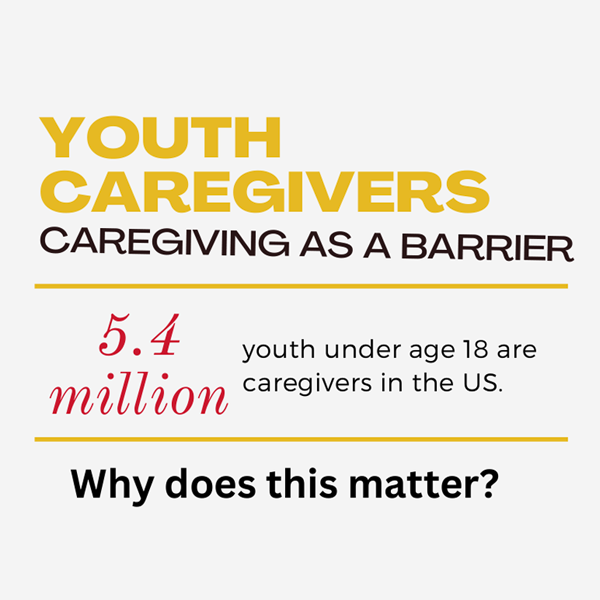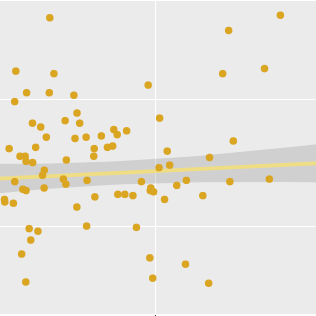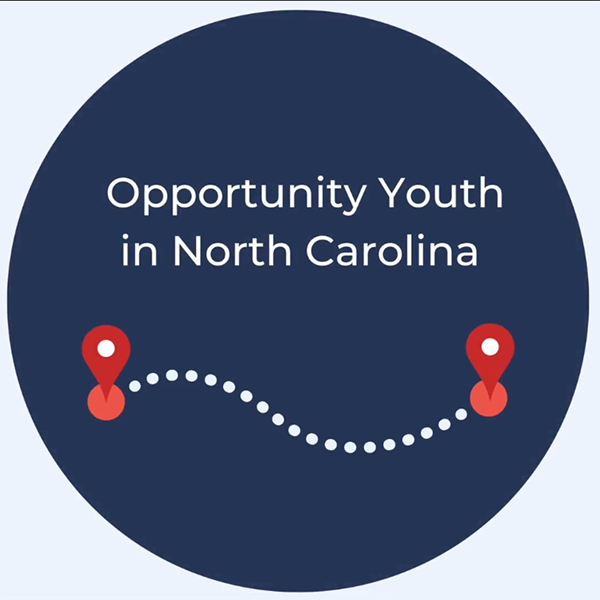
The Carolina Across 100 POV Challenge
UNC Engagement Week
February 27th – March 3rd 2023
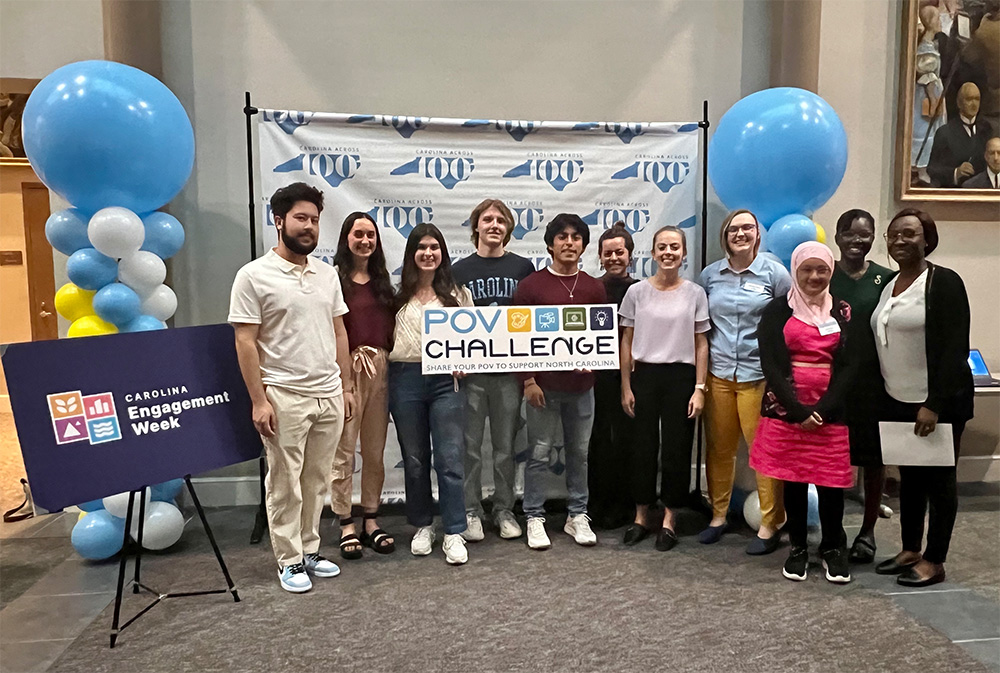
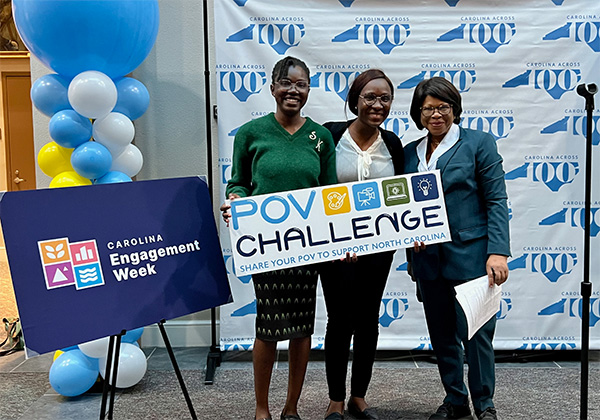
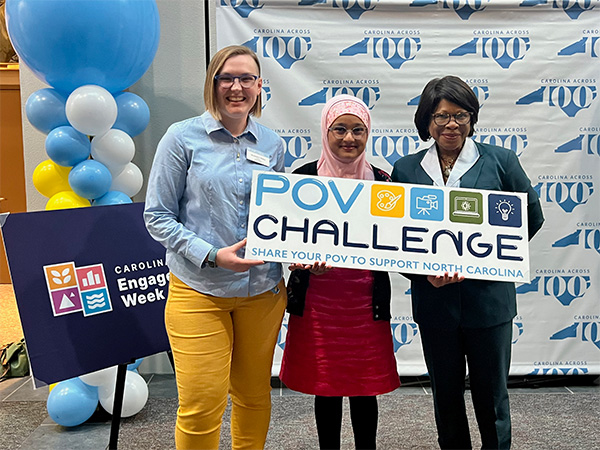
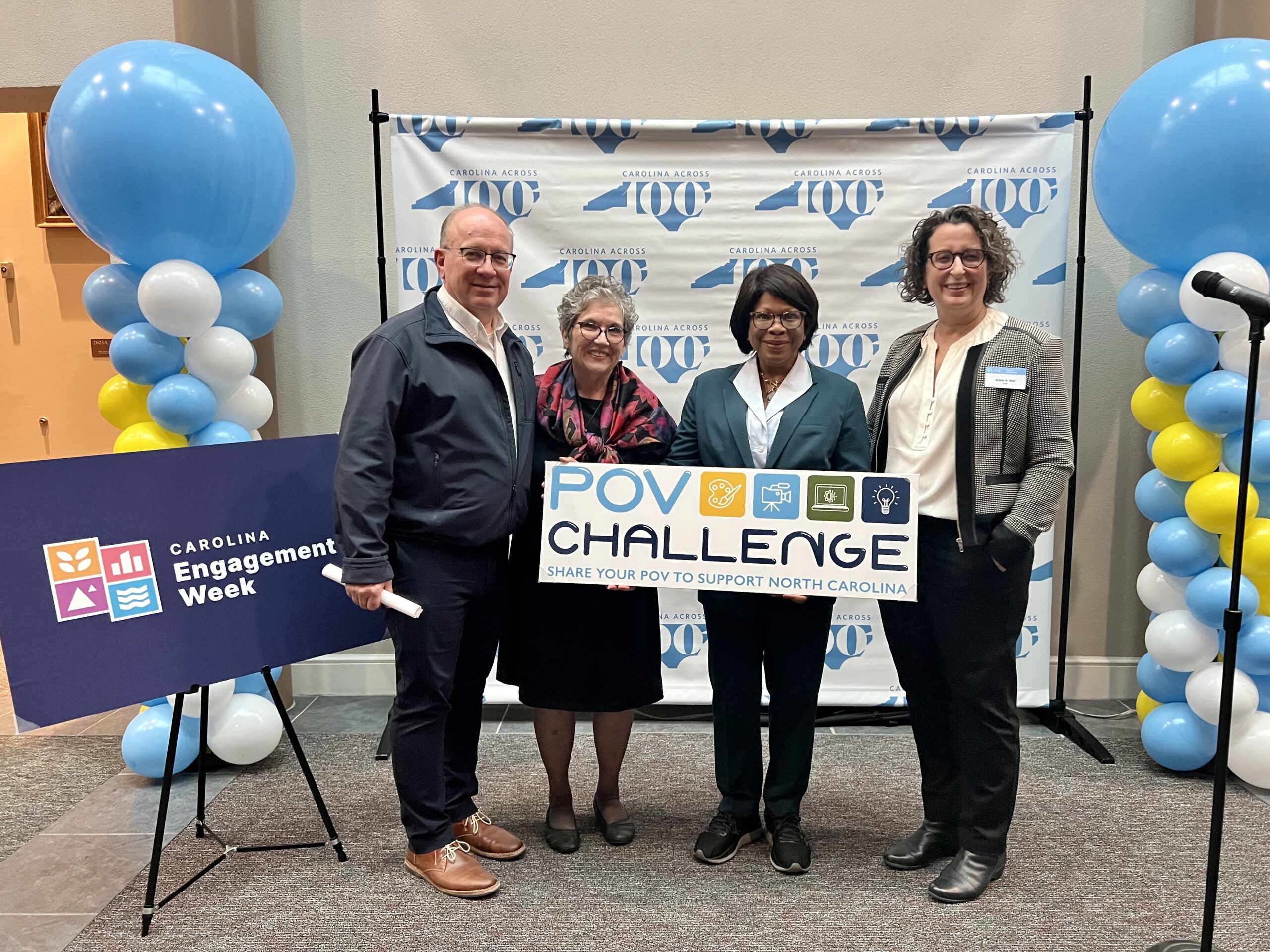
Across North Carolina, there are approximately 57,900 young people who fall into the “Opportunity Youth” definition. To understand both the barriers and bright spots these young people encounter and create, the Carolina Across 100 team has sought to learn from the experts – the youth themselves. Focus groups, recorded testimonies of local success, and student engagement activities have all helped inform their work.
Last year, we put out a call to undergraduate and graduate students across campus – “Combine your skills and NC data to offer your own Point of View (POV) on the challenges facing North Carolina’s Opportunity Youth — help us better understand this population from your POV by using a range of quantitative and qualitative data to create a visualization or other product.”
UNC students delivered – producing creative products such as interactive data dashboards, podcasts, and brochures that relay “Who are Opportunity Youth in NC and what are their challenges to education and work?” Of the students that submitted a project, there was representation across multiple departments and programs – such as biology, public health, human development and family science, sociology, public administration, and psychology.
The submissions will be archived by UNC libraries so that anyone across the state can learn from their work, as well as shared directly with the “Our State, Our Work” community teams.
Who Participated?
11 Students: 5 undergraduate, and 6 graduate
10 different majors/concentrations
4 different campus units
Business School
College of Arts and Sciences
Masters of Public Health
Masters of Public Administration
Projects
2 Canva posters
1 interactive data dashboard
1 podcast
1 recorded presentation
In Their Own Words
When is the next opportunity to get involved with Carolina Across 100?
Stay connected to Carolina Across 100 as more opportunities for student engagement are announced. Subscribe to regular e-mail updates. Submit a student interest form to explore deeper involvement with Carolina Across 100.


